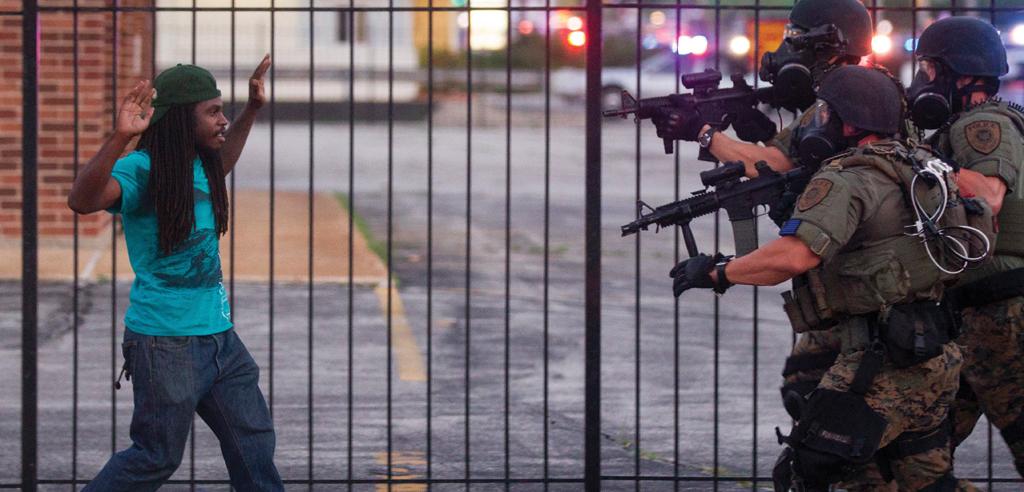
Everyone, journalists and analysts especially, writes about the coronavirus crisis, making analogies with the economic crisis of 2008. But you have to look back a few years to find another point of reference: the post-9/11 era where a shock at the level Planetarium served as an excuse for the largest cut to civil and political liberties ever seen, through the Patriot Act.
Technology and militarization in times of coronavirus
The scenario before us is a combination of both scenarios, the greatest economic crisis of the last 70 years combined with the militarization and backward movement of freedoms in our countries. All this at a time when neoliberalism has left us fragmented societies where individualism prevails, increasingly fostered by technological advances.
Once fear of the virus has been inoculated, our societies are transforming by leaps and bounds. Locked up in our homes, the greatest fear now is that inert markets will fall ill with coronaviruses, a virus that does not discriminate on the basis of race, gender or class, but our societies do, discrimination facilitated by their increasing militarization.
This whole scenario is synthesized in the United States, which has already become the country with the most infections and deaths in the world, and where nevertheless, and despite the denial first, and a lousy management afterwards, Trump's popularity continues in increase, and everything seems to indicate that he will be reelected in November against a Democratic Party without ideas once the withdrawal of Bernie Sanders, who had the best proposals to deal with a health and economic crisis like the one we are experiencing, and the consolidation of Joe Biden as presidential candidate to face Trump. The choice between Trump and Biden shows that fear prevails and that the American people are not prepared for the changes to come.
Meanwhile, in France Macron declares "We are at war" and in Spain the state of national alarm is declared, the army is taken to the streets and the Secretary of State for Digitization and Artificial Intelligence develops an application that allows geolocation by mobile phone to each and every citizen of the country, to verify where they are and if they are where they declare to be. In Italy the app that is being developed seeks to detect cases of contagion and with whom the Italians have been meeting or meeting, in order to isolate them as quickly as possible.
Delivering our data to solve a health crisis would not be so serious if it were not for when the pandemic ends, technology at the service of social control will remain.
But it is in China where the use of technology and social control has been perfected through the Suishenban application, a kind of traffic light that, after granting you all the permissions for your geolocation and control, offers you a green, yellow or red light, depending on the places you have visited and people you have been close to. The QR code you provide is already a passport to enter government buildings, hospitals, and even private businesses. Suishenban uses Big Data and has access to the databases of the Police, the Health Commission, telephone and internet operators, and airlines. This, combined with the control of the body temperature of people on the streets, has managed to stop the pandemic in the territory of the People's Republic of China. If we add to all this the Chinese government's social credit system, along with others such as Alibaba's Zhima Credit, in which an algorithm gives you a higher or lower score according to your good behavior, a score that allows you to access different services, Orwell's 1984 falls short, though the Black Mirror episode Nosedive is pretty close.
Also in Latin America and the Caribbean, the military have taken to the streets in Chile, Colombia or Brazil, and not only to carry out the necessary logistical tasks as in Mexico, but to control the population. A population that, according to ECLAC, is imminent to be poorer, from 185 to 220 million in Latin America and the Caribbean in situations of poverty and extreme poverty, one third of the 620 million that inhabit Our America.
But if the coronavirus is going to leave us a greater militarization and curtailment of freedoms as negative effects of the economic and health crisis, it should also leave us positive elements to think about the coming society, such as a determined commitment to de-commodify health and each less and less dependence on the dollar, the currency of a United States that only represents 10% of trade and 15% of world GDP.
The era of digital biopolitics is already here, and as the concept of sovereignty is transformed, closing borders, but opening the data, we must take advantage of the commitment to technology and 5G that the US and Europe try to veto so as not to leave China to become the first world power, and use it to our advantage to build a fairer society that leaves behind the capitalist mode of production. With or without coronavirus.
No comments:
Post a Comment